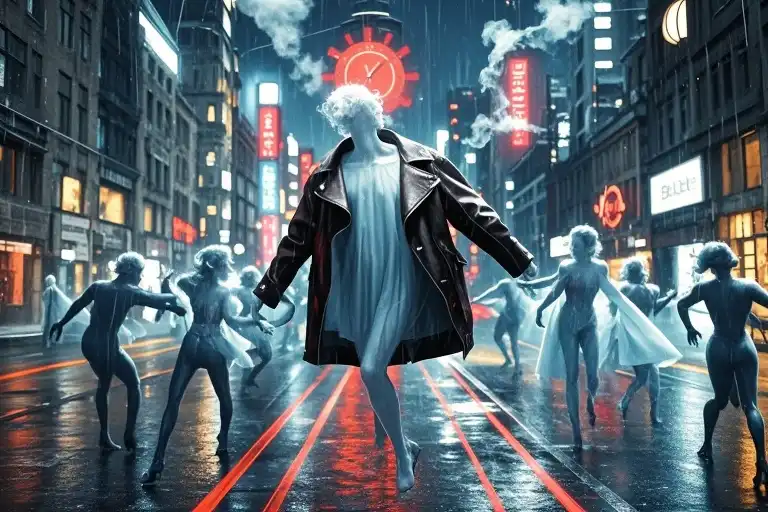The whiskey glass left condensation rings on the bar counter as the stranger leaned closer. “You still laugh like her,” he said, his words slurring with bourbon and vulnerability. Behind him, neon signs bled crimson light onto wet pavement, their buzz harmonizing with my suddenly racing pulse.
I remembered being nineteen and invincible, perched on a Brooklyn rooftop with a boy who swore he’d carve my name in his bones. The city stretched beneath us like a living circuit board, its electric heartbeat pulsing through our intertwined fingers. When he messaged me a decade later — “Do you still wear your hair twisted with that silver clip?” — I finally understood what Rilke meant about love being combustion. Some fires leave permanent shadows.
The Replacement Myth
We live in the age of disposable everything – upgradeable phones, swipable matches, replaceable parts. My friend Clara spent last Christmas Eve fielding calls from a college sweetheart who could still describe the vanilla-rosemary scent of her homemade candles. “Why won’t he let go?” she screamed into the phone, as if heartache could be solved like a software glitch.
Neuroscientist Lisa Feldman Barrett’s research reveals our brains aren’t hard drives. Memories aren’t stored but reconstructed, each recollection blending reality with imagination. That joke you forgot telling? The way you absentmindedly twirled your hair during lectures? They become neural playdough, reshaped into something new yet hauntingly familiar.
Proust’s Madeleine 2.0
The “biscuit moment” got a modern upgrade when Starbucks baristas noticed a pattern: men ordering peppermint mochas in July often stared at the syrup bottle like it contained ghosts. My former roommate Tom confessed (after three IPAs) that his ex’s shampoo smelled like “Christmas morning and heartbreak.”
Science explains this through the piriform cortex – our brain’s smell decoder. Unlike visual memories stored in the hippocampus, scent bypasses rationality and punches straight into emotional memory. It’s why hospitals smell like hand sanitizer, but your childhood home smells like potential.
The Gender Paradox
A 2022 Cambridge study found men recall romantic details 18% more accurately than women. Dr. Ethan Cross theorizes it’s not nostalgia, but unfinished business. “Male socialization discourages emotional articulation, creating mental feedback loops,” he explains. Those unsaid words fossilize into psychic artifacts.
Take my cousin Mark, who still owns the concert ticket stub from his first date with Sarah – not because he’s sentimental, but because “it feels like leaving a movie halfway through.” We crave narrative closure, even when life insists on cliffhangers.
Ghosts as Guides
Heidegger argued we’re “thrown” into existence without explanation. Those random memories that ambush us in elevator rides? They’re breadcrumbs to our hidden selves. When I ran into Jake from college, now a Wall Street bro in a $3,000 suit, he quoted my long-forgotten joke about Schrödinger’s cat. In that moment, we weren’t middle-aged strangers but time travelers.
The man at the bar bought me another drink. “She left for Barcelona,” he said, tracing the whiskey ring with his fingertip. “But sometimes when I hear that laugh…” His sentence hung unfinished, like all the best and worst memories do.
We don’t choose our ghosts. They choose us – in the scent of rain on leather, the cadence of a laugh, the particular tilt of someone’s head when they feel seen. These aren’t chain links, but constellations. Navigate by them.

